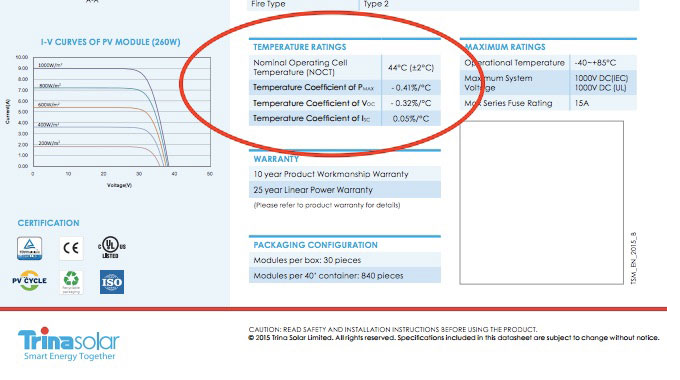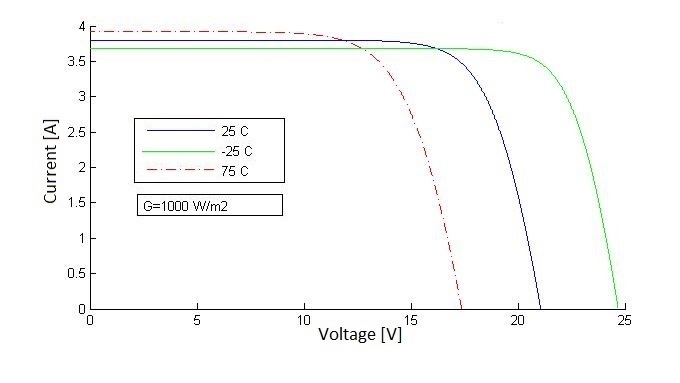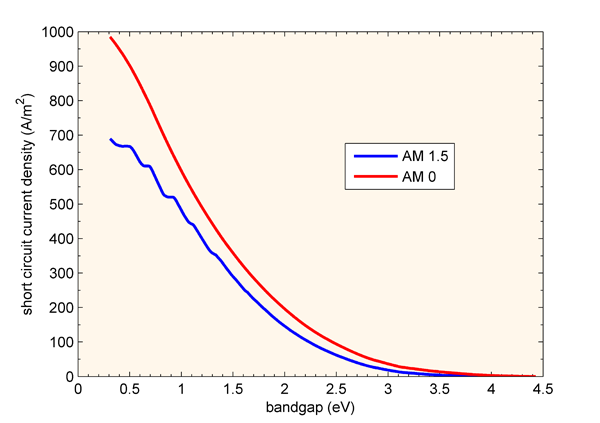These temperature coefficients are important and the temperature of the solar cell has direct influence on the power output of a solar pv module.
Solar panel temperature coefficient calculator.
This means a mono solar panel will lose half of one percent of its power for every degree the temperature rises.
Solar panel voc at stc.
Certain rooftops absorb more heat than others.
So if a panel is rated to have a temperature coefficient of 0 50 per c that panel s output power will decrease by a half of a percent for every degree the temperature rises about 25 c 77 f.
Each solar cell technology comes with unique temperature coefficients.
Temperature coefficient of vm c stc 1000 w m 1 5 am 25c.
Most panels have a temperature coefficient of between 0 2 c to 0 5 c when tested under standard laboratory conditions.
It indicates what the temperature effect is.
Thin film panels can see temperature coefficients closer to 0 2 c.
Once the temperature a solar module operates in increases the power output of the solar module will decrease.
The temperature coefficients indicate what happens to the power w the voltage v and the current a if the temperature rises by 1 degree.
Upsolar is not liable for damages resulting from the use of the upsolar pv string calculator.
All solar cells have a temperature coefficient.
This means that the temperature coefficient indicates what percentage the solar module s output power will decrease for every degree celsius the temperature of the solar cells rises above 25 c.
This is the open circuit voltage the solar panel will produce at stc or standard test conditions stc conditions are the electrical characteristics of the solar panel at airmass of am1 5 irradiance of 1000w m 2 and cell temperature of 25 o c.
The material of your roof can have an impact on the solar panel s temperature.
The temperature coefficient represents the rate at which the panel will underperform at each increase in degree celsius c.
Accurate output of the upsolar pv string calculator relies on the input of accurate data and does not take into account all bos specifications e g.
Every solar panel will have a temperature coefficient.
Solar panel temperature coefficient.
Thin film solar panels have a lower temperature coefficient than traditional monocrystalline or polycrystalline panels.
This solar panel temperature coefficient is usually expressed as a percentage per degree celsius per degree c.
This information can be found from the solar panel manufacturers data sheet please see example here.
Although that number sounds small the surface temperature of a dark colored roof in the summer can be significantly higher than 25 c.















































